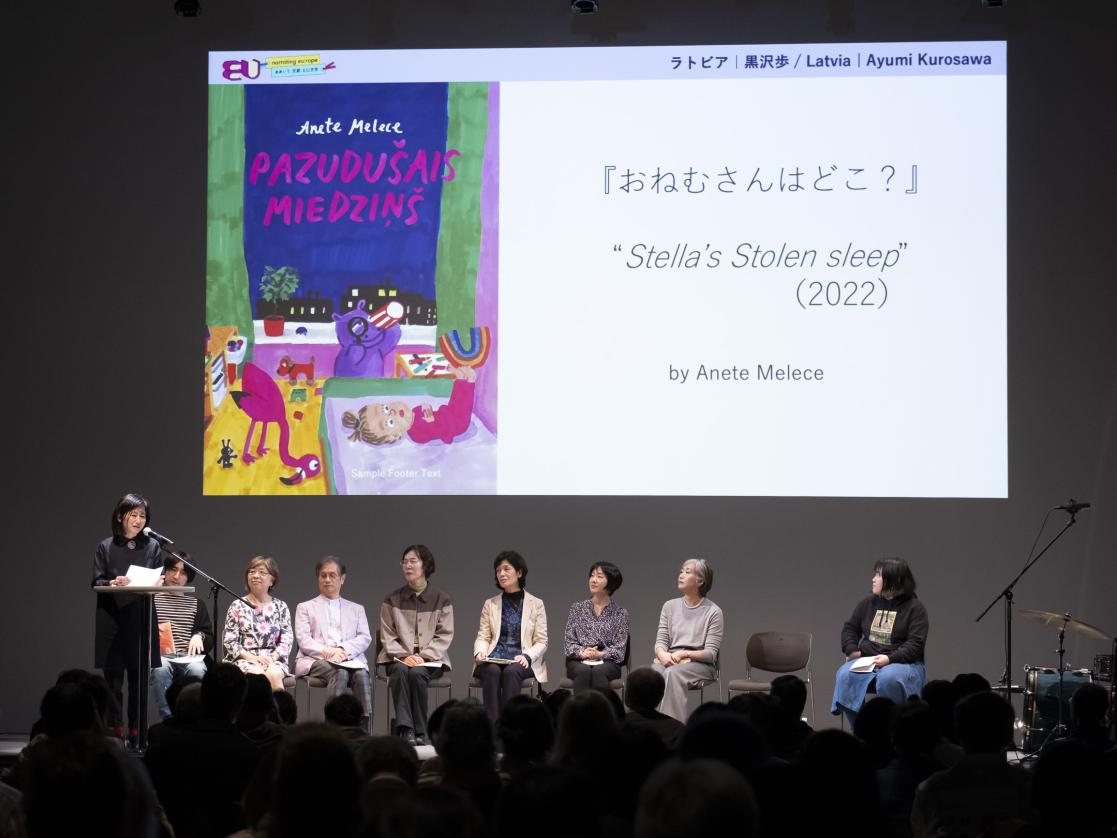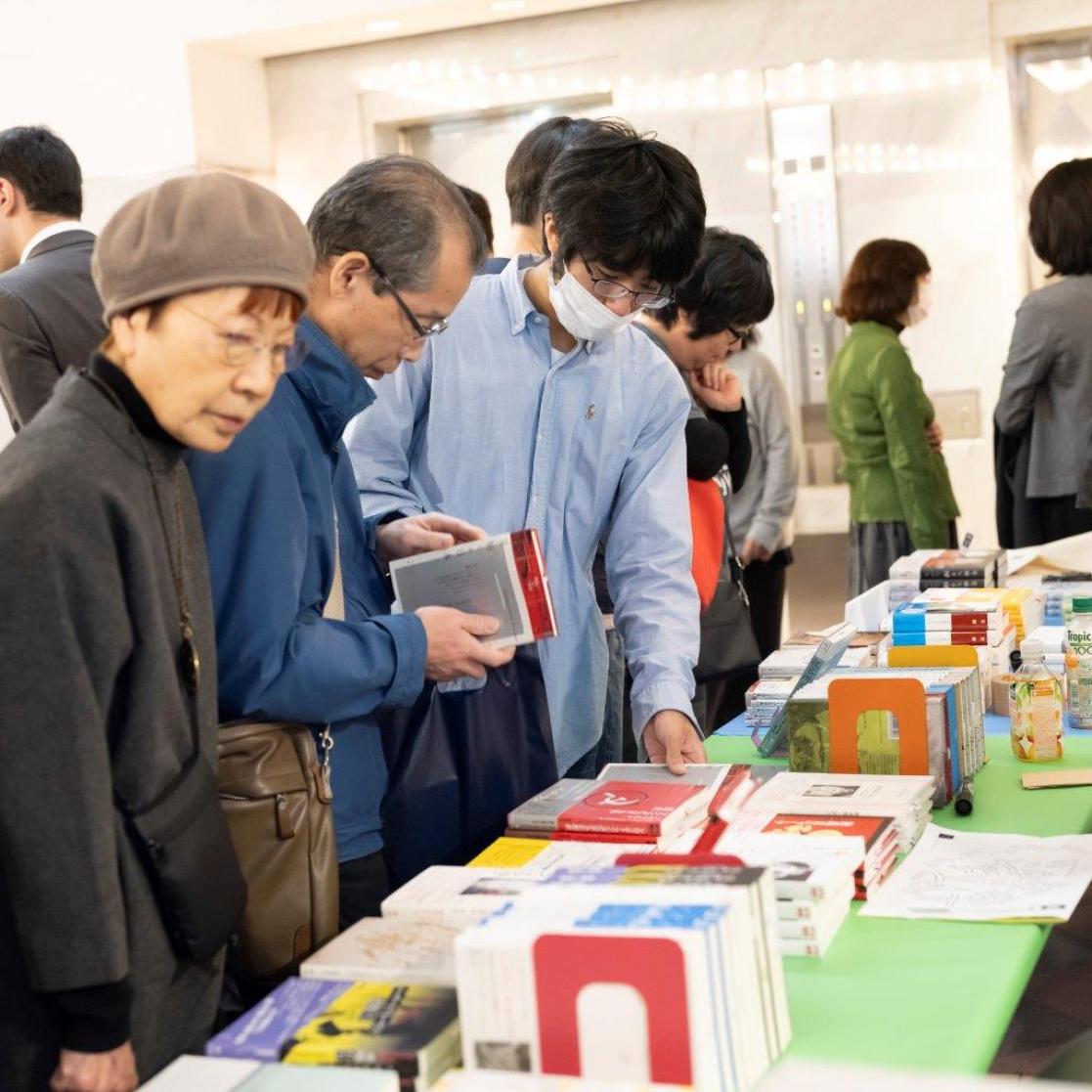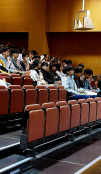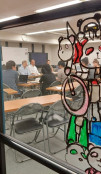The EU Delegation hosts inaugural event for Narrating eu:rope

On 23 November, the Delegation of the European Union (EU) to Japan kicked off narrating eu:rope, a new initiative to introduce the latest developments in European literature and new Japanese-language books by European authors to Japanese readers and literary professionals.
The launch event held on the same day, titled Language on the Move, drew over 250 guests to Spiral Hall in Minami-Aoyama, Tokyo. The packed programme introduced a wide range of literary works from the EU’s 27 Member States, while European literature published by Japanese publishers was on sale in the foyer. The guests were also treated to specially created onigiri (Japanese rice balls) with ingredients from across the EU.
Opening the event, Haitze Siemers, Minister and Deputy Head of the Delegation of the European Union to Japan, said, “One of Europe's defining characteristics is the mix of cultures and languages. Our EU-funded initiative aims to transmit this multilingualism in the diversity of contemporary European literature to Japan, as well as strengthen the ties between the literary scenes in Japan and Europe.”
Translation—the key to bringing literature across borders
Language on the Move centered on translation. Translators often remain behind the scenes, yet operate at the forefront of literary trends and are crucial to bringing stories across national and cultural borders.
No fewer than 19 Japanese translators specializing in European languages took to the stage against a backdrop of house tunes by DJ YELLOWUHURU, with moderation provided by writer, book reviewer and YouTuber Sukezane Watanabe. In brief presentations, they each introduced recent works from their respective source languages that they found particularly attractive to Japanese readers, giving the audience a broad overview of the contemporary European literary landscape.
AI—the translator’s friend or foe?
In the theme talk, the timely topic of “Literary Translation in the Age of AI” was explored by author and linguist Ai Kawazoe and translator and literary critic Yukiko Konosu, with moderation by Kyoko Yoshida, author and director of the Kyoto Writers Residency.
Asked by Ms. Yoshida if AI was a translator’s friend or foe, Ms. Konosu responded that, while it could be useful, it required time-consuming preparation for proper use.
Ms. Kawazoe emphasized that literary translation would always require a human element due to the continuous evolution of language and other factors.
“The interpretation of a word can change from person to person, and the same word can take on a different meaning over time. I think such experiences are uniquely human,” she said.
Ms. Konosu highlighted the lowering of language barriers as an advantage of AI translation. “Now that translation technology has developed so much, there is no need to go through the trouble of writing everything in English,” she said, noting that more and more people were now writing in their own languages.
Even so, she warned against the tendency toward English-centeredness, pointing out that “at international conferences, the English translations are sometimes regarded as the source material. In such cases, the English language is already being used, and the original may be lost.”
The performance programme included poetry readings by Czech poet, novelist and screenwriter Marek Šindelka and Spanish novelist, essayist and poet Mercedes Cebrián, accompanied by improvised performances by drummer Tatsuhisa Yamamoto.
A packed program for literary professionals and general readers
Narrating eu:rope will continue until February 2025 with a range of activities for literary professionals and general readers focusing on international exchange in the field of literature.
A dedicated website, eubungaku.jp, will also provide comprehensive information on the literary scenes of EU Member States through interviews with authors, articles and lists of book fairs, awards, residency programmes and more.

Delegation of the European Union to Japan, 2023

Delegation of the European Union to Japan, 2023
Photo credits: Jun Tanikawa (1st and 2nd photos) and Yohta Kataoka (3rd photo)





